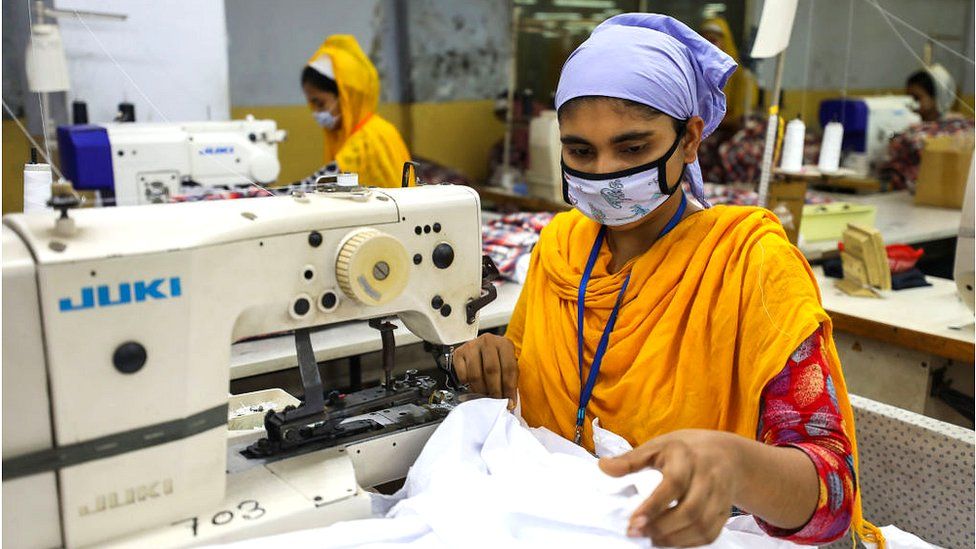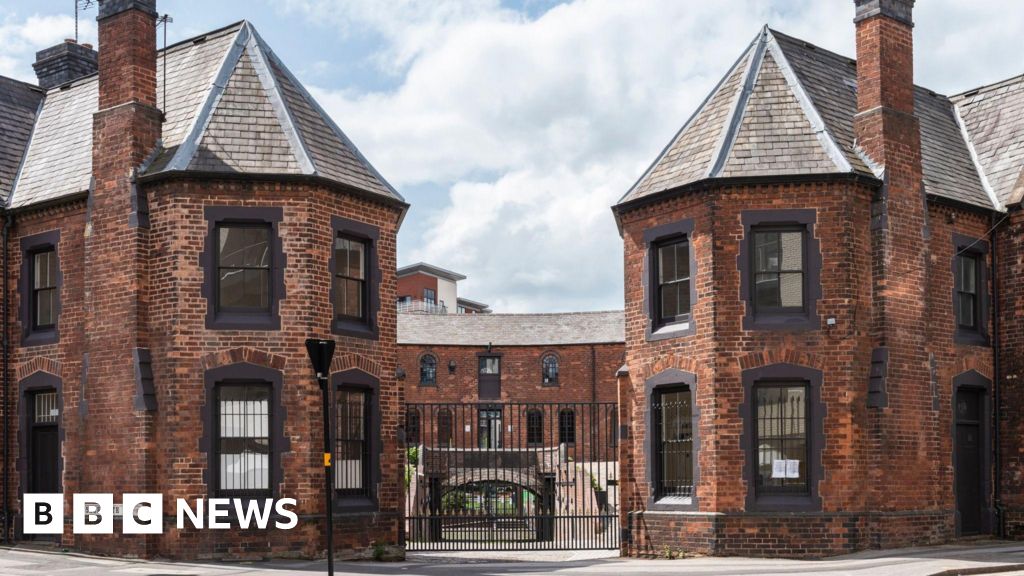ARTICLE AD BOX
 Image source, Getty Images
Image source, Getty Images
Bangladesh is the second largest garments exporter in the world
Major high street fashion brands have paid factories in Bangladesh less than the cost of producing their clothes, researchers claim.
A survey of 1,000 factories found many were paid the same prices as before the pandemic two years ago - despite soaring costs of materials.
One in five said they struggled to pay Bangladesh's £2.30 a day minimum wage.
Aberdeen University's Business School carried out the research alongside justice charity Transform Trade.
The report looked at the period from March 2020 to December 2021.
It found 90% of larger high street brands buying from four or more factories were reported as engaging in unfair purchasing practices.
These practices included cancellations, failure to pay, delays in payment and discount demands, with knock-on effects including forced overtime and harassment.
Several retailers denied the claims made in the report.
Muhammad Azizul Islam, professor of sustainability accounting and transparency at Aberdeen University, led the project .
He said: "Two years on from the start of the pandemic, Bangladeshi garment workers were not being paid enough to live on, with one in five manufacturers struggling to pay minimum wage while many fashion brands which use Bangladeshi labour increased their profits.
"Inflation rates soaring around the world are likely to have exacerbated this even further."
Image source, Getty Images
Image caption,The garment industry accounts for 85% of Bangladesh export income,
He said larger brands buying from many factories were engaging in unfair purchasing practices more frequently than smaller brands, according to suppliers.
The garment industry accounts for 85% of Bangladesh export income, with more than 12 million Bangladeshis dependent on the sector.
The study also found that after the pandemic, factories only employed 75% of the workers they had before, suggesting that up to 900,000 could have lost their jobs.
Prof Islam has spent 17 years looking into the lives of workers in Bangladeshi fashion factories. He grew up in Dhaka city surrounded by them.
He hopes that policy makers in the UK will listen to his findings.
'Wake-up call'
Prof Islam added: "Retailers say in their reports that they have a commitment to the workers and they have made progress, but transparency is a big problem in the sector and it is difficult to establish if certain products are ethically produced."
Fiona Gooch from Transform Trade called the research "a wake-up call".
She told the BBC: "When retailers treat suppliers badly by breaching previously arranged terms, it's workers who suffer.
"If a retailer fails to pay the agreed amount, or delays payments, the supplier has to cut costs some other way, and this is frequently passed on to their workers, who have the least power in the supply chain.
"We need a fashion watchdog to regulate UK garment retailers, along the same lines as the existing supermarket watchdog."
A Fashion Supply Chain parliamentary bill was tabled with cross party support in July last year.
It proposed the establishment of a watchdog to oversee fair purchasing between UK clothing retailers and suppliers around the world.

 2 years ago
54
2 years ago
54








 English (US) ·
English (US) ·